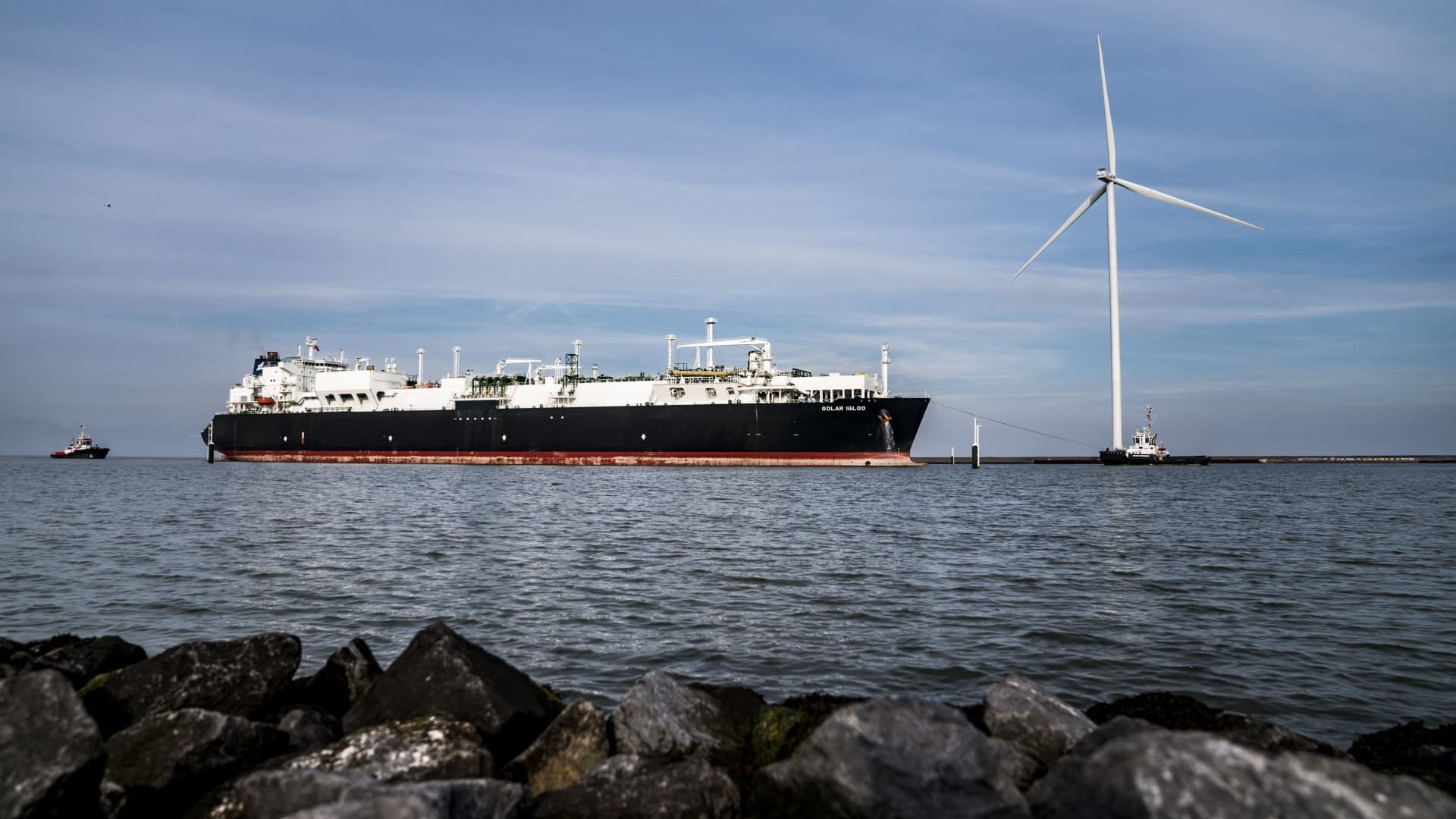
This image, from Sept, 2022, shows a liquefied natural gas tanker arriving at a port in the Netherlands.
Siese Veenstra | AFP | Getty Images
The power crisis gripping Europe has little to do with Vladimir Putin and it could be argued that the Russian leader’s actions have helped improve the situation, according to Per Lekander, managing partner at Clean Energy Transition LLP.
During a wide ranging interview with CNBC’s “Squawk Box Europe” last week, Lekander — previously a fund manager at Lansdowne Partners — spoke about how the situation facing energy markets had evolved in recent months.
“This summer, after Russia had cut gas … I thought the winter would be enormously dire,” he said.
“I really thought it … could be a large part of German industry shutting down … widespread cuts … and it has panned out — so far — much, much better.”
Referencing additions in solar power capacity and liquefied natural gas terminals, Lekander went on to hammer home the importance of reducing demand.
“I would say power demand is down 10%, gas demand is down around 20, a bit higher on the industry, a bit less on … personal, a bit more in the north, a bit less in the south, but … that’s roughly it,” he said.
“So I would say, on the gas side, the worst is over from a security of supply situation.”
It was then put to him that while a lot of experts felt the worst was over for now, worse was to come next year.
“That’s wrong,” Lekander replied. “And … assuming that these gas savings remain — because we can see it now, we have really, really cold weather, we are still drawing less than typical seasonality.”
“The key thing is that we hold on to the demand saving,” he said. “If we do that, and as long as we have access to LNG, which I would say looks very credible … we will see high prices for another one, two years, but I wouldn’t say on the gas side it’s a security of supply issue.”
The situation with power was “a bit different,” however, he said. “The reason why we have a power crisis in Europe has very little to do with Putin,” he said. “I would almost say that Putin actually made the situation better,” he added.
Expanding on his point, Lekander explained that, in his view, the current situation was down to a number of factors.
“This is the consequence of long term under investments in conventional, long term red tape in renewables and then these political closures of nuclear, coal, lignite, etcetera,” he said.
“You could see it already in 2018 and it’s started to materialize,” he added. “What I’m saying, that [it] is better now, is because … some of those closures got reversed … [in] Germany, for instance. Second, you have this 10% reduction in demand.”
Lekander’s comments come at a time of huge disruption within global energy markets following Russia’s invasion of Ukraine in February.
The Kremlin was the biggest supplier of both natural gas and petroleum oils to the EU in 2021, according to Eurostat, but gas exports from Russia to the European Union have slid this year.
Major European economies have also been trying to reduce their own consumption and shore up supplies from alternative sources for the colder months ahead — and beyond.
Simultaneously, big industrial players such as Germany have decided to recommission a number of coal-fired power plants to compensate for a lack of Russian gas.
When it comes to usage, at the end of September the European Council announced energy ministers from the EU had come to an agreement on “emergency measures to reduce energy prices.”
“The Council agreed to a voluntary overall reduction target of 10% of gross electricity consumption and a mandatory reduction target of 5% of the electricity consumption in peak hours,” it added.
Security of supply is a hot topic right now, and on Wednesday it was announced that the U.K. and U.S. were forming a new energy partnership focused on boosting energy security and reducing prices.
The U.K.-U.S. Energy Security and Affordability Partnership, as it’s known, will be directed by a U.K.-U.S. Joint Action Group headed up by officials from both the White House and U.K. government.
Among other things, the group will undertake efforts to make sure the market ramps up supplies of liquefied natural gas from the U.S. to the U.K.







